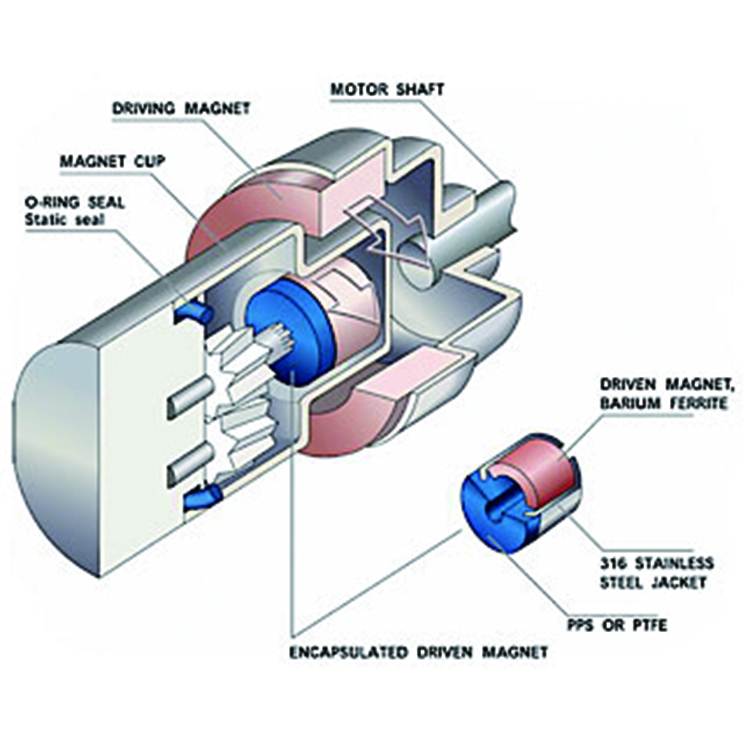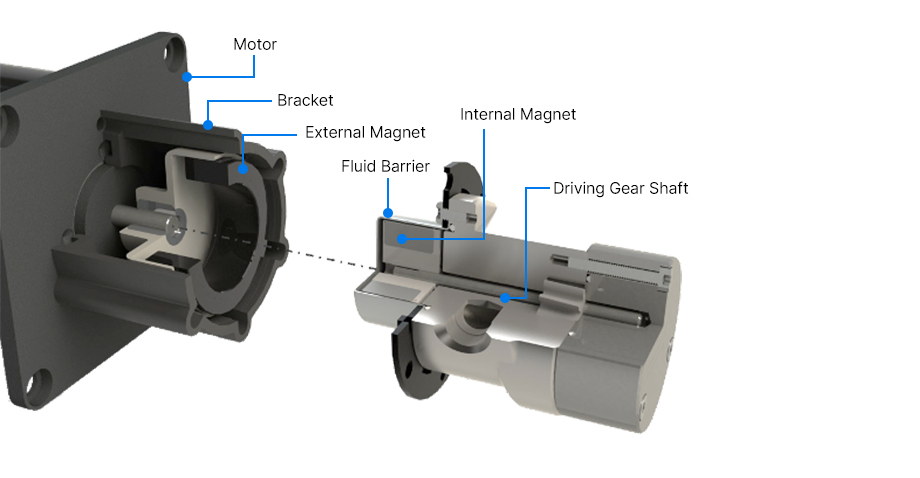The important role of magnets in magnetic couplings
The important role of magnets in magnetic couplings:
The invention and development of magnetic drive couplings are closely related to the continuous emergence of new permanent magnetic materials. The first used ferrite material, which has a wide range of material sources and low price, but due to its poor magnetic properties, it can only transmit a small torque in the same volume as the traditional coupling, thus limiting the magnetic force The development of couplings. The second-generation permanent magnet materials are samarium cobalt (SmCo5, Sm2Col7) and aluminum nickel cobalt (AlNiCo). Its magnetic properties are greatly increased compared to ferrite materials, so that the magnetic coupling can transmit larger torque. However, the reserves of samarium, cobalt, and nickel used in samarium cobalt and alnico are scarce and are scarce and expensive strategic materials, so the price is high, which restricts the development of magnetic drive couplings. The rare earth neodymium iron boron (NdFeB) permanent magnet material has a maximum magnetic energy product (BH) max of 286 6kJ/m, becoming the third-generation permanent magnet material after samarium cobalt and alnico. Neodymium-iron-boron (NdFeB) is not only more excellent in magnetic properties, but also rich in raw material resources. It can replace cobalt with cheap iron (Fe) and replace samarium with abundant neodymium (Nd), so its price is lower than samarium cobalt and aluminum nickel cobalt , Market competitiveness is strong, easy to promote and apply. At the same time, the magnetic energy product of NdFeB is high, the amount required is small, the processing performance is good, it can be cut and drilled, and the yield is high, so it can reduce the volume of the magnetic drive coupling, reduce costs, improve efficiency, and save energy. It is widely used in magnetic drive couplings.


